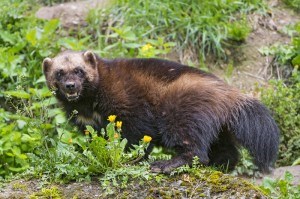
Well, it’s been a warm winter hasn’t it? I’m happy to pay a little less in heating bills and to wear a few less layers, but with so many wild species dependent on winter conditions, I can’t help but wonder how the rest of the critters are coping with the warmer temperatures.
Warm winters, according to the International Panel on Climate Change (IPCC), are generally what we’re in for around here. A growing body of climate science suggests that for some species, this might be a good thing. But for other species, it means they either have to adapt in real time, or die out. Figuring out how a species might react is the name of the game, and the game is complicated.
“There’s a strong tendency to frame climate change in black and white, and it’s not,” says Dr. Brent Sinclair, an associate professor in the Department of Biology at the University of Western Ontario.
Sinclair and colleagues Caroline Williams and Hugh Henry recently released a paper that presents a general framework for predicting the impact of winter climate change on land-based plants and animals.
Take the mountain pine beetle, says Sinclair, a species that is killed off by long stretches of extremely cold weather. In the absence of a good, long freeze, it will likely do quite well. Good news for the beetle, but bad news for the pine trees that the beetles take out.
On the other end of the spectrum, warming trends are creating worrying mismatches between some species and their food source, says Sinclair. For example, for most migrating birds, day length triggers migration. However for their local food sources, like caterpillars and other insects, temperature is often the alarm bell that wakes them up from their winter sleep.
As springs heat up, the alarm goes off earlier and earlier, “so what happens is that by the time the birds arrive, the caterpillars have all developed and moved on,” says Sinclair.
Warm weather also affects snowpack—rain and above zero temperatures decrease its depth and insulating properties. This is a problem for wolverines that depend on late winter and spring snowpacks to build dens in which to birth their young. Research shows they prefer a snowpack of at least a meter.
Sinclair also points to amphibians, many of which are adapted to survive winter by freezing solid in underground burrows. It takes a lot of energy to prepare their bodies to freeze, and repeat freeze-thaw cycles use up energy they need to survive. A thick snowpack helps insulate them from temperature swings.
Likewise, many perennial plants begin their spring growth under the cover and protection of a late spring snowpack. Early snowmelt can leave them exposed, potentially resulting in them freezing and dying without protection, says Sinclair.
The list of potential effects resulting from warmer winters is long, and growing with every completed study. There is still a lot to learn. Many biologists are simply trying to understand the range of adaptability that many species have, so they might predict which animals will be most vulnerable in the decades to come.
In the meantime, the current forecast continues to predict another warm, spring-like week. A gaggle of geese recently flew overhead, and the first grizzlies have poked their noses out of their dens.
Still, Jasper locals won’t put their toque and mitts away just yet. March often still has a few weather tricks up her sleeve. I certainly hope so. In the coming decades, she’s going to need them.
Niki Wilson
Special to the Fitzhugh
